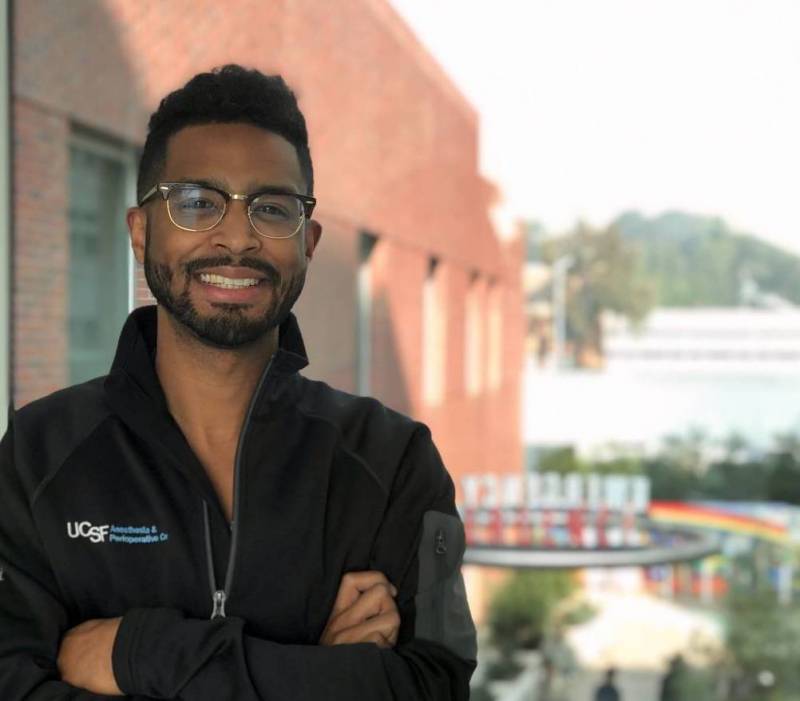What do the staffing shortages that we keep hearing about look like inside where you work?
As we go through ebbs and flows of waves and the days get longer for staff members because of staffing shortages, I think it just takes a hit on the morale, really, as people end up getting sick or have high-risk exposure and need to be out of work for long periods of times. Or they need the mental space to be off of work. What it does for the remaining staff members at the bedside, the days get longer. The work seemingly gets harder and we are kind of left in the position where we just have to push on to continue to provide care.
What are you talking about in terms of days getting longer? What’s the longest day you’ve worked and how normal is that?
I have had 16- to 18-hour days. A normal day for us is 12 hours, but I’ve been there for extended periods of time because I don’t want to leave my co-workers in a worse staffing position.
What has been your secret if you haven’t gotten COVID yet? Do you feel like there’s something you really make sure to do and then clear your mind once you’re out of the space of just thinking about COVID?
I don’t think I have a secret recipe per se. The biggest thing that I’ve tried to uphold through the beginning of this and even outside of COVID when it comes to other health care issues is that I try to respect and believe in the science that highly educated people have provided us. So I’ve followed vaccine mandates and so forth, and as sad as it has been for some individuals during the past, I guess over two years now, I’ve tried to respect the social distancing and constant masking and really reduce my exposure to people outside of, like, my small circle that I trust. So that has meant smaller Christmases and no big gatherings for me for quite some time and reducing the types of travel — things that I love. But it was really all at the cost of making sure that I’m still healthy. I have a great opportunity of getting sick at work, as I’ve told many of my co-workers. It would be quite upsetting to … as soon as I walk out of the door and become very lax and get sick.
Your colleagues who do get sick, who do get COVID, do you see them grappling with exactly when they should come back to work?
I don’t think anyone who is sick or out waiting for testing necessarily wants to leave their colleagues in a situation where they’re stressing about how they can take care of all the patients in the COVID unit, all the patients in the non-COVID units. We have a great dynamic team of health care professionals who are committed to the job that they love to do. So I think most of these individuals are ready to go back to work. They want to go back to work. They want to help out.

